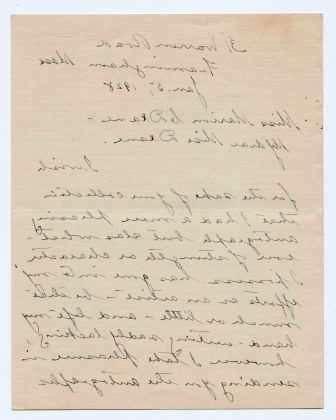By
Here is a look at events taking place at the Society in the week ahead as the calendar turns another page:
– Monday, 26 February, 6:00PM : Starting things off this week is an author talk with Pual Finkelman of Gratz College. Supreme Inustice: Slavery in the Nation’s Highest Court examines the careers of three important antebellum Supreme Court Justices: John Marshall, Roger B. Taney, and Joseph Story, who all upheld the institution of slavery in multiple rulings. Finkelman establishes an authoritative account of each justice’s proslavery position, the reasoning behind his opposition to black freedom, and the incentives created by his private life. This talk is open to the public, registration required with a fee of $10 (no charge for MHS Fellows and Members, or EBT cardholders). Pre-talk reception begins at 5:30PM, followed by the speaking program at 6:00PM.
– Tuesday, 27 February, 5:15PM : This week’s seminar is part of the Modern American Society and Culture series and is a panel discussion. In “Capitalism and Culture,” Jonathan Cohen of University of Virginia and Davor Mondom of Syracuse University examine the reaction against welfare state capitalism in the mid-20th century U. S., looking at two companies that promoted themselves as bastions of free enterprise or as a solution to high state taxes. Sven Becker of Harvard University provides comment.
Seminars are free and open to the public; RSVP required. Subscribe to receive advance copies of the seminar papers. To RSVP: email seminars@colleensflowercellar.com or call (617) 646-0579.
– Thursday, 1 March, 6:00PM : MHS Fund Giving Circle members are invited to Dinner with Dolley, a festive evening with good food, fine wine, and lively conversation inspired by Dolley Madison. During dinner, MHS President Catherine Allgor, who is known for her published work on Dolley Madison, will provide history and fun facts about dining with Mrs. Madison.
This event is open only to MHS Fund Giving Circle Members. Join a Giving Circle today at likr.colleensflowercellar.com/support/mhsfund.
– Saturday, 3 March, 10:00AM : The History and Collections of the Massachusetts Historical Society Tour is a 90-minute docent-led walk through our public rooms. The tour is free, open to the public, with no need for reservations. If you would like to bring a larger party (8 or more), please contact Curator of Art Anne Bentley at 617-646-0508 or abentley@colleensflowercellar.com.
While you’re here you will also have the opportunity to view our current exhibition: Yankees in the West.













